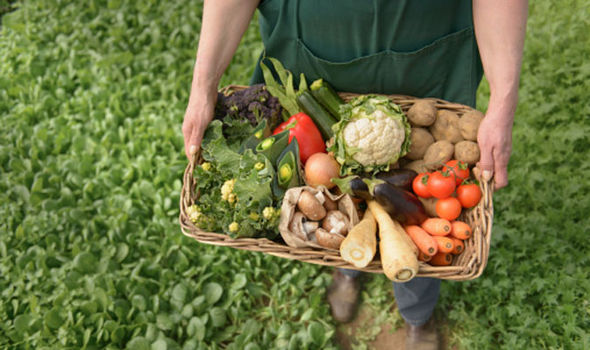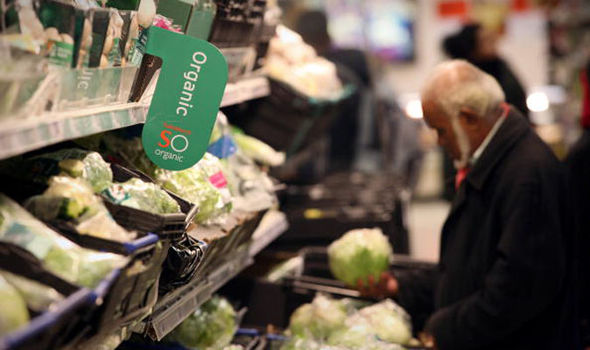ORGANIC food may not be best for the planet, a study found.
Fruit, vegetables and meat produced without using chemicals is becoming an increasingly popular choice because people believe it is healthier both for humans and good for the environment.
But researchers at the University of British Columbia believe this may not be the case because organic farming has between 17 and 25 per cent smaller yields than conventional farming on average.
As a result, to produce the same amount of food more land is needed affecting soil and water quality.
It uses more energy, conditions of farm workers may not be better and its high prices puts it out of reach for poorer consumers.
Dr Verena Seufert at the Institute for Resources, Environment and Sustainability said: “Organic is often proposed a holy grail solution to current environmental and food scarcity problems, but we found that the costs and benefits will vary heavily depending on the context.”
The study analysed organic crop farming across 17 criteria such as yield, impact on climate change, farmer livelihood and consumer health.
It was the first systematic review of the scientific literature to identify the conditions leading to good or bad performance of organic agriculture.

GETTY
Organic farming has between 17 and 25 per cent smaller yields than conventional farming on average
Factors include biodiversity, how it affects climate change, water use and quality, soil quality, yields, problems of scaling organic farming up, its impact on farm workers and consumer health and how affordable the food is.
Many people choose organic because of worries about overuse of pesticides and the belief organic is more nutritional.
The study argued in countries like Canada where pesticide regulations are stringent and diets are rich in micronutrients, the health benefits of choosing organic may be marginal.
Co-author Professor Navin Ramankutty said: “But in a developing country where pesticide use is not carefully regulated and people are micronutrient deficient, we think that the benefits for consumer and farm worker health may be much higher.”
 GETTY
GETTY
Organic food is usually chosen by people who are worried about the overuse of pesticides
Consumers argue it is more sustainable and past research has compared the costs and benefits of organic and conventional farms of the same size, which does not account for differences in yield.
But organic crop yields are lower than under conventional farming and many of the environmental benefits of organic agriculture diminish once lower yields are accounted for.
For example fields managed organically have on average lower nitrogen loss and lower pesticide leaching than conventional farms.
It also uses more recycled nitrogen and phosphorus, thereby introducing less new nitrogen and phosphorus into our water systems.
 GETTY
GETTY
Organic food is seen as a more healthier and nutritional choice of food
But in lower yields the nitrogen loss per unit food produced might actually be higher under organic management and run off of manure impacts water quality.
In terms of biodiversity on average, organic management results in a 40 to 50 per cent increase in organism abundance in agricultural fields and researchers do not know if this is offset because lower yields require more land to feed the same number of mouths.
But plants and bees benefits the most, while other arthropods and birds benefit to a smaller degree.
Organic farms typically have lower energy use and lower green-house gas emissions than conventional farms but when poorer yields are taken into account “emissions might actually be higher under organic management.”
And water use is lower on organic farms because the land can hold more of it.
Dr Seufert said: “While an organic farm may be better for things like biodiversity, farmers will need more land to grow the same amount of food.
“And land conversion for agriculture is the leading contributor to habitat loss and climate change.“
While their findings suggested organic alone cannot create a sustainable food future, it still has an important role to play.
Organic is one way that consumers have control over and knowledge of how their food is produced since it is the only farming system regulated in law.
Dr Seufert said: “We need to stop thinking of organic and conventional agriculture as two ends of the spectrum.
“Instead, consumers should demand better practices for both so that we can achieve the world’s food needs in a sustainable way.”
The study was published in Science Advances.
Source:express.co.uk
